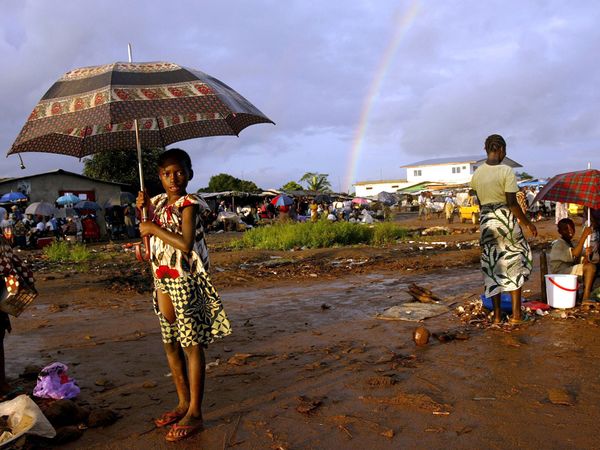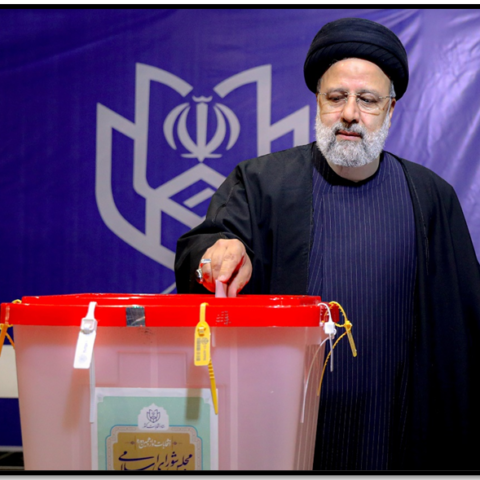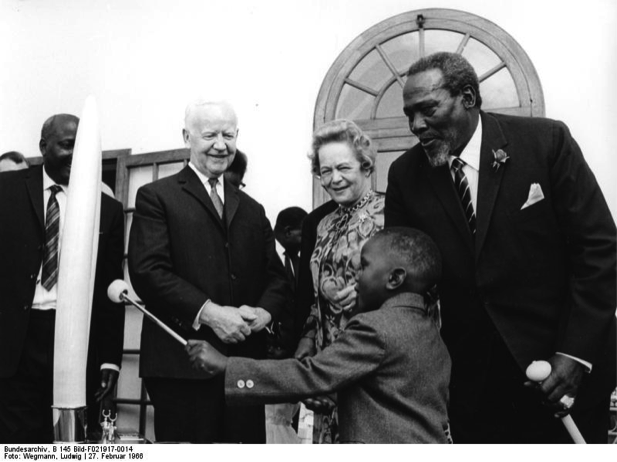
Source: National Geographic
For generations in rural Liberia, when someone brought a dispute to the tribal chiefs for mediation and arbitration, they might have been subjected to a process known as “sassywood,” a traditional practice of trial by ordeal. In one of its forms, an arbitrator would place a machete on a fire until the machete became red-hot. The machete would then be dragged against the legs of several suspects, and one who was burned would be declared guilty. In another form of sassywood, suspects would be made to drink a concoction made from a poisonous bark; those who survived were innocent, while those who died were guilty.
Sassywood was one of the many forms of justice practiced in Liberia within its customary law system. This customary system, exists alongside the formal justice system, which is complete with judges, justices, and courts similar to those of U.S. common law.
Liberia was embroiled in a 14-year civil war from 1989 to 2003. During that time period, corruption prevailed among government employees, and the traditional justice system was not exempt. The courts were used by powerful individuals as political tools, which caused Liberians to lose faith in their efficacy. Once Liberia ended its civil war and held democratic elections, the government recognized a pressing need to reform its legal sector in order to attract international investment, restore its citizens’ faith in the justice system, and establish the rule of law. However, with the government attempting to create long-lasting reform across many government agencies, the budget for judicial reform has been low. Courts are unequally spread throughout the country, which makes them difficult for rural Liberians to access. Their dockets are full and understaffed, which means that even for those Liberians who are able to access the courts, the time it will take to resolve a case – and the cost of multiple trips to urban areas – are prohibitive. Officials have little formal training and often lack access to basic resources such as pens, paper, and copies of the law, required to render effective judgments.
This has raised questions as to what kinds of justice are available to Liberians below the level of the magisterial courts – which, in practice, have been the customary systems in which traditional leaders serve as arbitrators of justice within their communities. While the judgments rendered by the chiefs do not align perfectly with the traditional justice system, the new political order, or even some human rights norms, the state has formed an uneasy partnership with these individuals because it is doubtful whether dismantling customary law in principle would lessen its use in practice. Endorsing it, on the other hand, yields it a sense of legitimacy and increases access to a form of justice in both urban and rural areas.
Interestingly, international organizations and non-governmental organizations have stepped up to address some of the challenges of the use of customary law programs. By providing training within rural communities to give citizens the tools to know and understand the law, training community-based paralegals to practice alternative dispute resolution at the community level, and providing traditional chiefs and tribal elders with resources to inform them of the traditional justice system, the international community and local non-governmental organizations are playing a novel role in the administration of justice – an issue typically handled completely under a state’s executive branch, which is now instead being supplemented, in creative ways, by actors well beyond the state.
Outside Liberia, the best example of this type of program is the Sierra Leone-based Timap for Justice, which is a joint venture of the Open Society Justice Initiative and the Sierra Leone National Forum for Human Rights. Timap provides community-based paralegals to assist in mediating conflict due to the shortage of lawyers in the country, and particularly within rural areas; there are only an estimated 100 lawyers in Sierra Leone, and only 200 in Liberia. The paralegals, who are born and raised in the communities in which they practice, intimately know both the local practices and customary law, as well as the traditional legal system. They work in partnership with open-minded chiefs to raise human rights awareness and assist individuals with everyday justice needs, such as cases of domestic violence, child abandonment, and state corruption.
This program has been replicated with great success within many other countries – including Liberia. Within Liberia, the Carter Center has also worked to train community-based paralegals in alternative dispute resolution. Working to inform citizens of their rights and to mediate the conflicts that occur on a daily basis, this organization is helping to empower citizens to fill a gap which the government of Liberia is unable to adequately address.
While practices such as sassywood still exist within Liberia, the state’s sponsorship of the customary law and the partnership of international organizations with customary law arbitrators is serving to increase access to justice for all Liberians – solving a centuries-old problem.

